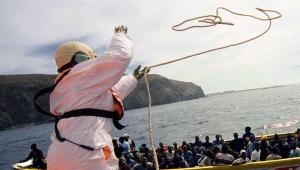This is opening up a ‘window’ for criminals to take advantage of the weak system, the report, published yesterday by The Sentry concluded.
The country’s “rampant illicit finance problems” put the financial system at risk as corrupt individuals use the weak law enforcement, inadequate legal framework and the largely cash-based economy to launder money.
The Sentry, which tracks money used for genocide and ‘crimes against humanity’, called on the DR Congo’s government to undertake a risk assessment, strengthen investigations of economic crime and close the gaps within the legal framework.
It also called for DR Congo to request international assistance to help with this, as the current regime lags behind international standards and provides a “window for kleptocrats and terrorists to utilise the DRC’s banking system to profit from corruption”.
Josh White, director of policy and analysis at The Sentry, said the findings underscore the need for the Congolese authorities to take serious action to combat money laundering and terrorist financing.
He said: “If Congo hopes to maintain access to the international financial system, it is incumbent on Congolese authorities to bolster their efforts to take serious action on the recommendations of this report.”
Additionally, The Sentry urged the Action Group Against Money Laundering in Central Africa, a regional intergovernmental group overseeing the adoption of anti-money laundering and counter-financing of terrorism, to evaluate the Congo’s efforts so that the country can get help to tackle the problem.
The country’s finance ministry conducted the last risk assessment 15 years ago but the report said these should be done regularly, such as every 10 years.
It added that this assessment could act as a “roadmap” for the government to begin addressing its shortfalls.
Sasha Lezhnev, deputy director of policy at the Enough, a project on peace and justice in Africa under the think-tank, said: “Systemic corruption continues to eat at the Congolese state's ability to effectively serve its people, as well as fuelling violent conflict.
“Several key reforms are needed to combat this, but the most important is for private sector and other stakeholders to hold the Congolese authorities responsible for addressing the inadequacies and lack of implementation of these laws.”







